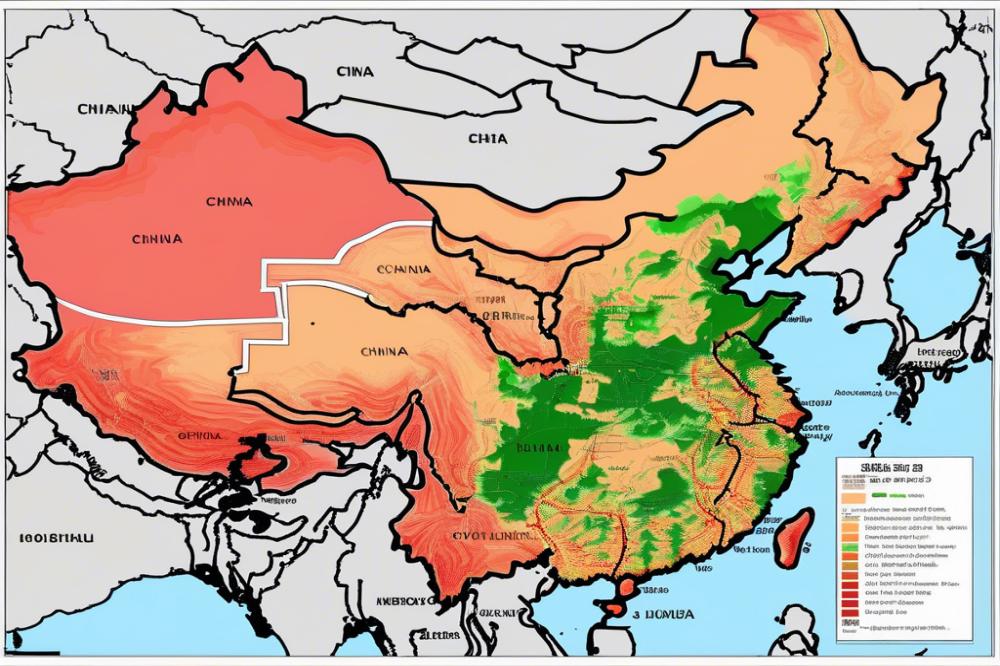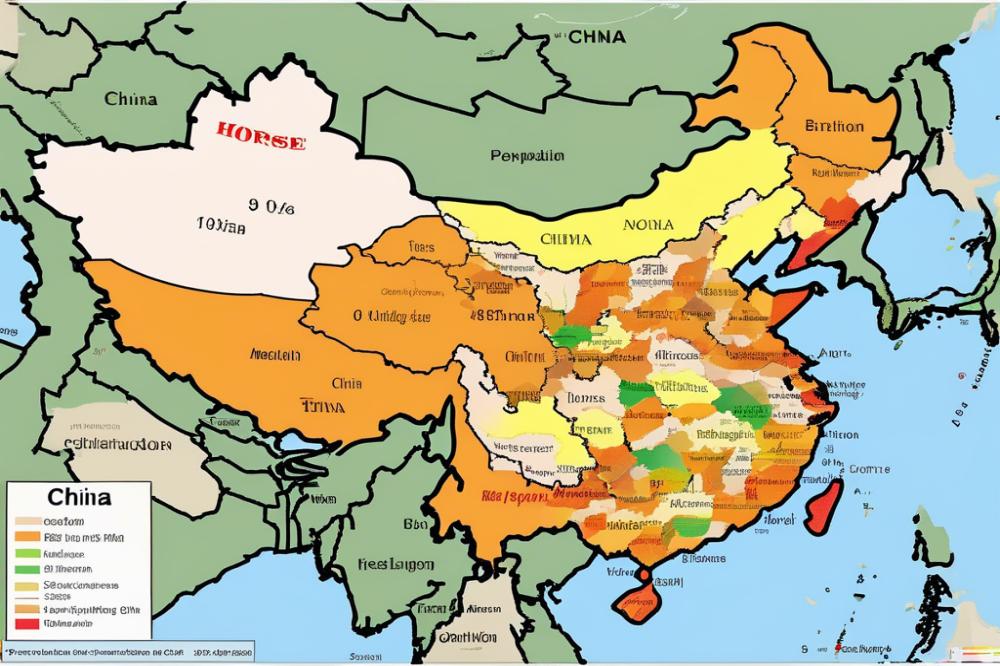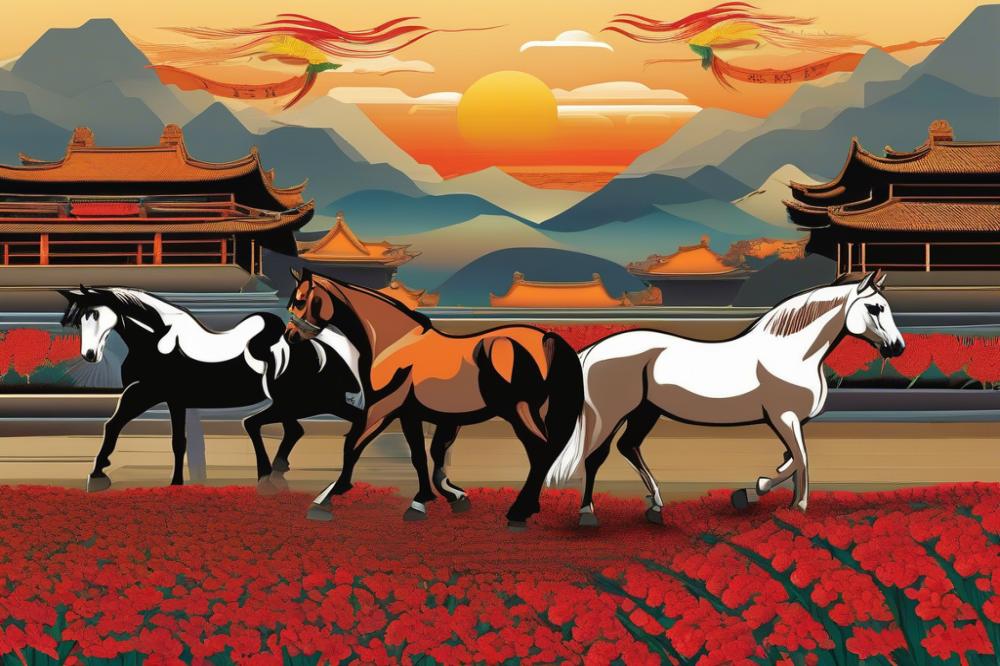Understanding the Role of Horses in Agriculture and Culture
The horse population in China is significant, with around 5.5 million individuals. This extensive number reflects not just a connection to agriculture but also a deep-rooted cultural heritage. Understanding the multifaceted role these majestic animals play is crucial for grasping their impact on society.
There is a rich tapestry of history intertwined with Horses in China. They have been vital for transportation, labor, and even companionship. Farmers rely on these animals for plowing fields and moving goods. Many communities have traditions that highlight the bond between humans and horses. Such relationships shape agricultural practices and cultural celebrations alike.
When we think of China’s equine population, it’s important to recognize the country’s standing globally. China ranks among the top nations regarding horse numbers, influencing both local and global equestrian culture. Delving into this topic reveals more than just statistics. It opens a window into the traditions and daily lives of people who hold horses in high regard.
In exploring the Agricultural Importance, one can see how integral horses are for many rural families. They offer strength and assistance that machinery sometimes cannot replicate. Ultimately, Horses in China symbolize resilience and adaptability, living side by side with communities and contributing to their livelihoods.
Horses in China: A Historical Perspective

Throughout Chinese civilization, horses have played a crucial role. Dating back thousands of years, they served many purposes. The ancient Chinese relied on these animals for agriculture, transportation, and war. Histories often highlight how vital they were in expanding dynasties and connecting regions.
Over centuries, equestrian culture began to take shape. Riding and training horses became a respected skill. The aristocracy, in particular, valued this art. Various dynasties celebrated horses not just for utility but also for their beauty. Festivals dedicated to equine events became common. People gathered to admire horses and showcase their riding abilities.
Traditional practices in China strongly link to these magnificent creatures. In rural areas, horses remain integral to farming operations. Farmers use them for plowing and carrying goods. Furthermore, spiritual beliefs often surround horses. In some cultures, they symbolize strength and fidelity. Reverence for horses is evident in art and literature throughout history.
During different periods, the bond between horses and humans evolved. Innovations changed how people interacted with these animals. Technological advancements have led to changes in agriculture. Still, the traditional skills of horsemanship continue to be passed down. Many older generations share their wisdom with younger riders.
Today, this rich heritage influences modern practices. Enthusiasts across China continue to embrace equestrian sports. Dressage, show jumping, and racing have gained popularity. Such activities foster a deeper appreciation for the connections between people and horses. This enduring relationship is a testament to the powerful role horses play in the lives of many.
Horses in Agriculture

In rural China, horses play a vital role in farming. Farmers use these animals as livestock to help with various tasks. Pulling plows is one of their main functions. This method allows for a more traditional approach to farming, often seen in smaller villages.
Transportation is another key contribution of horses. They carry goods and people across vast distances in areas where modern vehicles may not reach. Whether it’s crops going to market or families traveling to visit relatives, horses make these journeys possible.
These animals also enhance agricultural sustainability. By using horses, farmers reduce their reliance on fossil fuels. This not only helps the environment but also lowers costs for hardworking farm families. The integration of these animals creates a more balanced ecosystem in which crops and livestock thrive together.
Traditionally, many farming methods include horses in their practices. Techniques passed down through generations often involve these animals. Their presence helps maintain cultural customs while promoting productivity in the fields. Farmers respect horses for their contributions, viewing them as partners in agriculture.
Economic Impact of Horses
Overview of Horse Breeding in China
Breeding horses has a long history in China. Many regions specialize in specific breeds to meet different needs. Farmers often raise horses for agricultural tasks, while others focus on competition or leisure riding. This practice supports sustainable farming and aids in the care of the land. Traditional methods play a substantial role in maintaining diverse equine genetics.
Economic Contributions of Horses to the Rural Economy
Horses serve as vital assets in rural communities. They help farmers with plowing and transporting goods. In many areas, these animals also offer an alternative source of income. The sale of horse-related products, such as manure for fertilizer, contributes to local economies. Many families rely on horses for their livelihood, benefiting from both work and trade.
The Tourism Aspect of Equestrian Culture and Its Benefits
Tourism linked to equestrian culture thrives in several regions. Scenic horseback rides attract visitors, promoting local traditions. Events showcasing horse skills, like riding competitions, draw crowds and boost income. Local artisans often sell crafts related to horses, enhancing community engagement. This tourism not only supports preservation of culture but also encourages economic growth.
Impact of Horses on Local and National Economies
The economic influence of horses extends beyond individual communities. Nationally, they contribute to rural development and job creation. Various industries, from feed production to veterinary services, benefit from horse-related activities. The horse population can reflect broader trends in agriculture, impacting trade policies and international markets. Overall, this vibrant sector plays a crucial role in shaping both local and national economics.
cultural significance of Horses
Symbolism in Folklore and Art
Horses hold a prominent place in Chinese folklore. They represent strength, loyalty, and prosperity. In ancient stories, steeds are often portrayed as noble creatures that can travel between realms. Their image graces many pieces of art, showing them alongside heroes and mythical beings. Paintings frequently depict galloping horses, symbolizing vigor and endurance. Traditional poetry celebrates their beauty and power, enhancing their cultural status.
Horses in Festivals and Ceremonies
Throughout the year, various festivals highlight the importance of horses in Chinese culture. The Spring Festival, for instance, often showcases horse parades that attract large crowds. These events feature traditional costumes and elaborate decorations. Many local communities also honor their horses during ceremonies, thanking them for their hard work. Such rituals link the animals to agriculture and village life. Celebrations bring families together, strengthening community bonds.
The Relationship with Local Communities
Horses foster strong connections among villagers. Farmers rely on them for plowing fields and transporting goods. This partnership enhances agricultural productivity while allowing for shared experiences. Many communities host events to showcase their horses, allowing locals to display their skills. Children often learn to ride at a young age, creating lifelong attachments. In rural areas, horses are more than just animals; they are integral to life. Their presence influences daily routines, celebrations, and farming practices.
Challenges and Future of Horses in China
China’s horse populations are facing several significant challenges. Factors such as urban development, land loss, and changing lifestyles reduce their habitats. A declining interest in traditional agriculture has made farming with horses less common. Consequently, fewer people are involved in horse breeding. This creates a cycle where there is less knowledge passed down about proper care and training.
Modernization plays a big role in this situation. Many farmers now prefer machines over horses to increase efficiency. This shift can lead to a loss of traditional practices. However, some communities still value the cultural significance of horses. Those who participate in equestrian sports often seek to preserve horsemanship traditions. A delicate balance exists between embracing new technology and honoring long-standing customs.
As we look to the future, it is essential to consider the role horses can play. Sustainable practices in agriculture may see a resurgence, promoting horse usage once again. Ecotourism also offers opportunities for horse-related activities, drawing attention to their importance. These developments could provide new avenues for conservation efforts. Horses may help in maintaining biodiversity and promoting cultural heritage.
Public awareness is necessary for fostering a greater appreciation for equine roles. Educational programs could teach younger generations about horse care and their histories. Interaction with horses can enhance understanding of agricultural practices, too. Increased community engagement might lead to a revival of traditional equestrian activities. Efforts to support responsible breeding and ownership can help secure better futures for equine populations.
Final Thoughts on Horses in China
Recapping the importance of horses in agriculture and culture reveals their deep roots in Chinese society. Across vast landscapes, these animals have been essential for farming and transportation. They have served as a vital resource for rural communities, providing labor and contributing to the economy. Beyond agriculture, horses carry immense cultural significance in festivals and traditions. They symbolize strength, freedom, and connection to the past.
Yet, challenges loom in the management of these livestock. As modern farming practices evolve, ensuring the welfare of horses becomes crucial. Sustainable practices must be adopted to protect their health and wellbeing. This includes proper nutrition, veterinary care, and responsible breeding. Protecting horses is not just about the animals themselves; it also benefits the communities that depend on them.
Looking ahead, the legacy of horses in China is one of resilience and adaptation. Their role may change, but the bond between humans and horses will likely endure. As society continues to progress, it is important to balance tradition with modern needs. Ultimately, the future of these remarkable animals will depend on thoughtful stewardship and cultural respect. By embracing sustainable management and honoring the cultural ties, we can pave the way for a brighter future for horses and their handlers alike.



